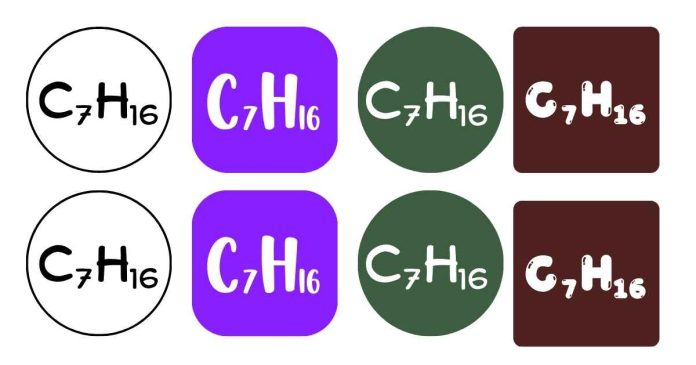The C7H16 isomer with the highest boiling point is n-heptane (normal heptane). It is a straight-chain alkane, which allows for greater surface area and stronger intermolecular van der Waals forces compared to its branched isomers.
In general, the boiling point of alkanes increases with molecular size and decreases with branching. Branched isomers have a more compact shape, reducing the surface area for intermolecular interactions, which lowers their boiling points.
Among the nine isomers of heptane, n-heptane has the simplest linear structure and thus the strongest intermolecular forces, giving it the highest boiling point of approximately 98°C (208°F).
By contrast, the most branched isomers, such as 2,2-dimethylpentane, have significantly lower boiling points due to weaker dispersion forces.


